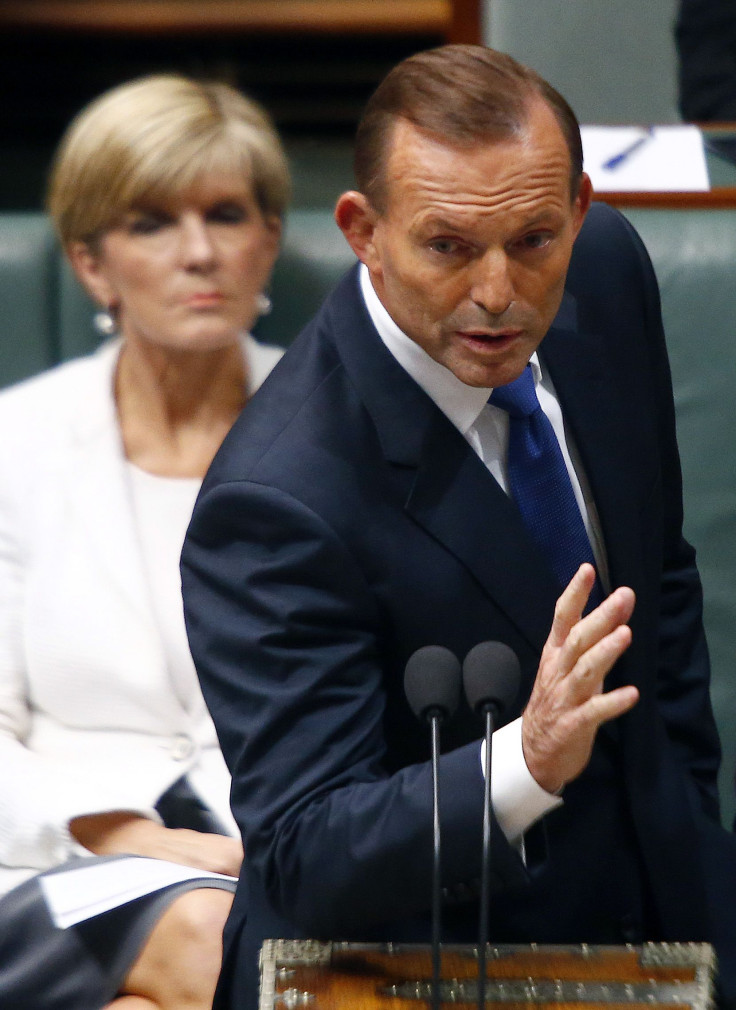Bali Nine Executions: Analysts Tell Govt to Go Easy On Repercussions as Bishop Warns Of 'Consequences;' Australia Has More to Lose

While Australia said it respects Indonesia’s sovereignty, the executions of Bali Nine ringleaders Andrew Chan and Myuran Sukumaran is something it cannot tolerate and won’t just let pass. Foreign Minister Julie Bishop warned of “consequences” that could severely impact the relations between Australia and Indonesia, including trade and investment as well as foreign aid.
A report by the AAP states the Department of Foreign Affairs and Trade has received over 1000 communications from various sectors of the Australian public urging the country to reduce its foreign aid to Indonesia. The latter receives AU$600 million in foreign aid every year from Australia. The proposal to slash this amount is likely to get a high thumbs up rate as well as strong political support in Australia.
But while the country still ponders over the foreign aid slash, one major consequence of the Bali Nine executions has happened – that of the recall of the Australian ambassador to Indonesia. With this move, Prime Minister Tony Abbott, at a media conference in Canberra along with Ms Bishop, had categorically confirmed that relations between the two countries “could not be business as usual.”
The recall just described how hurt Mr Abbott and Ms Bishop were over how the negotiations panned out to save the lives of Chan and Sukumaran. "Having seen their [Wednesday morning] press conference, it's clearly one of deep hurt over how the issue has been handled. In the last 48 to 72 hours or so, it seems Indonesia seemingly wanted to inflict the maximum hurt,” Peter Jennings, Australian Strategic Policy Institute executive director, told SMH. "I think that reflects a deep-seated problem in the relationship which we will see play out over a quite a while."
However, Greg Fealy, an Australian National University Indonesia expert, cautioned Mr Abbott and his government to go easy on the repercussions. He noted Jakarta’s executions stand had been fairly consistent, and that he thinks Indonesia could sure manage without the foreign aid.
Ross Taylor, president of the West Australian-based Indonesia Institute, was more blunt on his impressions of Australia’s consequences to the Bali Nine executions. He believed Indonesia will hardly notice a ban or even partial withdrawal by Australian companies from doing business with them. "It is us who needs the business, and it is us who must consider our response, in light of these executions, very carefully.”
Much could be at stake, the cattle trade for instance. “We're talking about billions of dollars worth of trade and investment between the two countries,” an ABC News report says.
Mr Abbott did say in his conference that despite the executions creating “a dark moment” for the two countries, Australia’s relationship with Indonesia is important. “We do not want to make a difficult situation worse.”
At the end, the repercussions could backfire at Australia. Things may just go on as usual between the two if Indonesia decides to ignore Australia’s rants “as nothing but a diplomatic protest… But if Indonesia decides to take offence then potentially a lot is on the line.”
To report problems or to leave feedback about this article, email: e.misa@ibtimes.com.au.




















